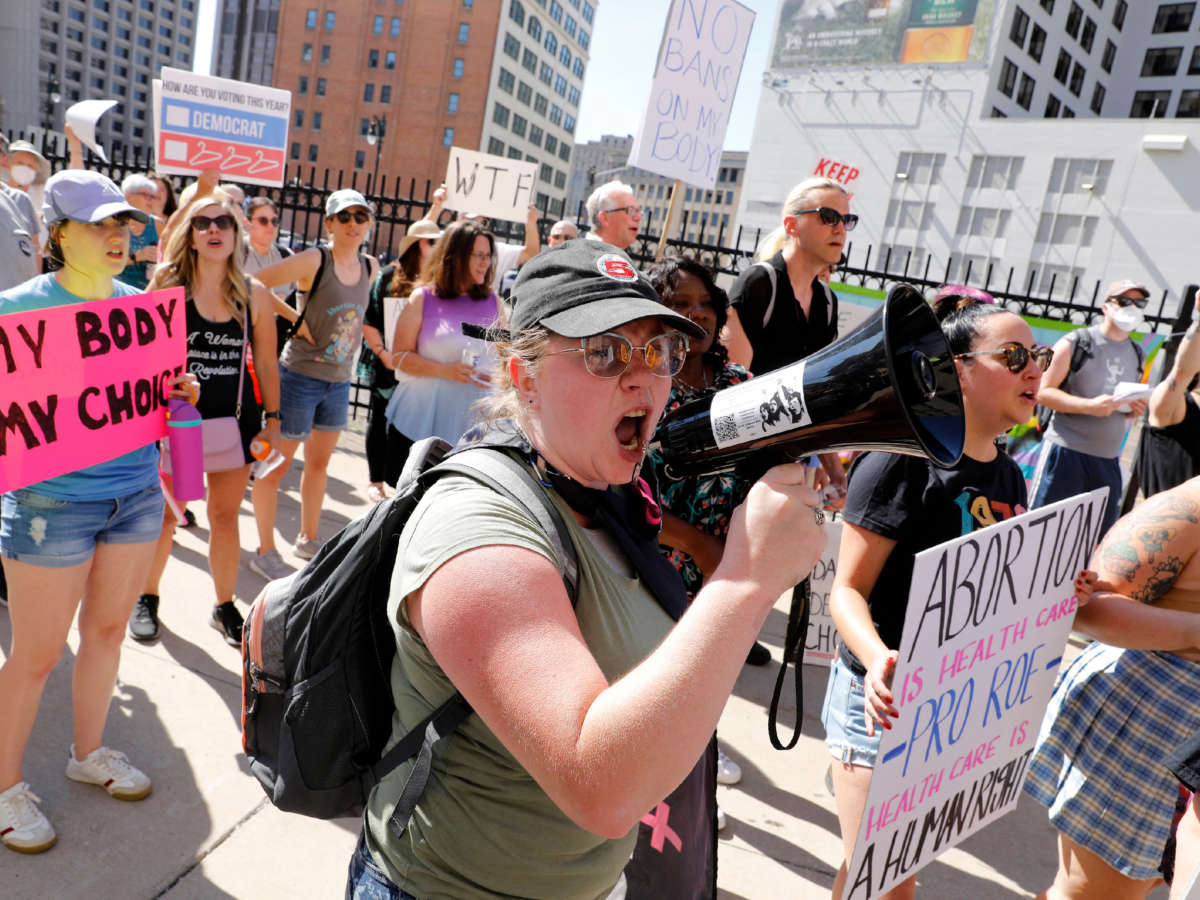A judge in Michigan has temporarily blocked the enforcement of a 91-year-old statute that would have banned abortions in the state at any stage of pregnancy.
On Monday, Oakland County Judge Jacob Cunningham issued a temporary restraining order on the 1931 law, which bans the procedure at every stage of pregnancy unless a pregnant person’s life is in danger. The statute makes no exception for rape or incest.
Cunningham’s ruling came hours after a separate appellate court ruled that a previous injunction only applied to state officials, and that county prosecutors could enforce the ban at their discretion, starting immediately. Cunningham’s order now keeps the state’s abortion protections intact while the case is being decided. Enforcement of the law, whether by state or county officials, “poses a threat of immediate and irreparable injury to the people of the State of Michigan,” the judge said.
The ruling on Monday will likely be appealed by anti-abortion county prosecutors who want to enforce the 1931 statute. For the time being, however, abortion providers in the state will not be punished for performing the procedure.
Gov. Gretchen Whitmer (D) praised the ruling.
“I am grateful for this relief — however temporary — because it will help ensure that Michigan’s doctors, nurses, and health care systems can continue caring for their patients,” she said in a statement.
State Attorney General Dana Nessel (D) also celebrated Cunningham’s temporary order.
“The legal fight in Michigan continues,” Nessel said, “and this temporary restraining order ensures prosecutors cannot target women or providers in the short term.”
The restraining order will remain in place while the case is being litigated. Cunningham scheduled a hearing on Wednesday to continue consideration of the case.
The ruling from Cunningham came several months after Whitmer sued to have the Michigan Supreme Court hear the case in an expedited manner. Actions like this are rare, however, and since Whitmer submitted the case to the state’s High Court, the justices haven’t acted upon it.
Anticipating a future ruling from the federal Supreme Court that would upend abortion rights recognized in Roe v. Wade — a ruling that justices recently handed down — Whitmer said in her lawsuit at the time that the 1931 state law, which is still on the books, is “unconstitutionally vague.” The law also violates rights to “privacy, liberty, bodily integrity, and equal protection” under the state constitution and other statutes, she said.
“If the U.S. Supreme Court refuses to protect the constitutional right to an abortion, the Michigan Supreme Court should step in,” Whitmer said at the time.


